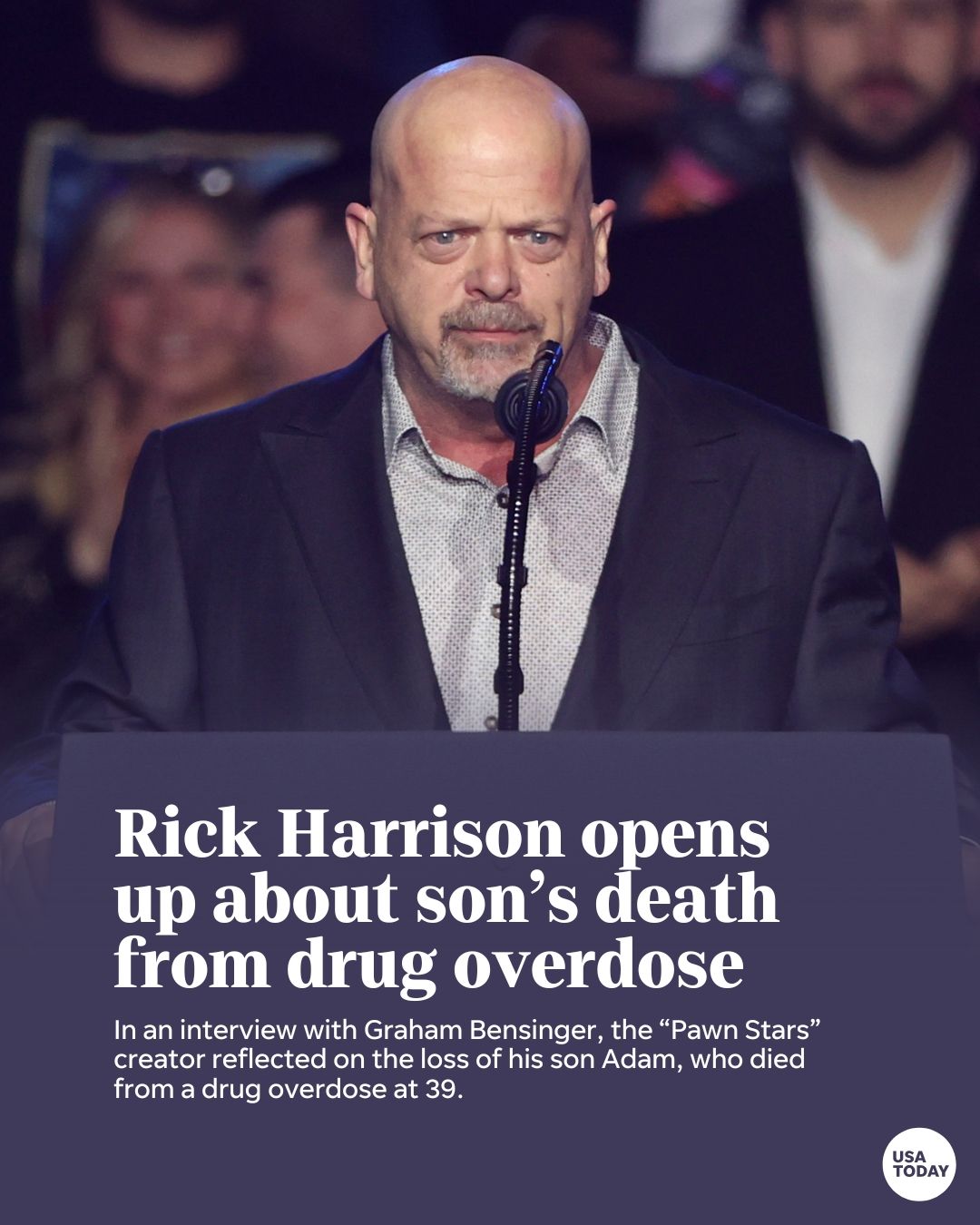
More than a year after the devastating loss of his son, Rick Harrison—best known as the creator and star of Pawn Stars—is opening up about the grief he continues to carry every single day. In a deeply emotional interview with Graham Bensinger, the 59-year-old reality TV star spoke about the death of his son Adam, who passed away in January 2024 at the age of 39 from a drug overdose involving fentanyl.
“I think about him every day,” Harrison confessed. “In his 20s, he had the drug problems, and I put him in rehab so many times. Every time, he’d be doing great, and then it would fall back. You hear the same story from a million people.”
Adam’s battle with addiction wasn’t unique, but the pain left behind is something that never fades for those who love him. Rick revealed that the drugs Adam took weren’t what they appeared to be. “Apparently, it wasn’t heroin,” he said. “He ended up getting some fentanyl that killed him.”
The Unbearable Weight of Grief
As any grieving parent can understand, Rick says his mind is constantly haunted by the question of “what if.” What if he had done something differently? Could he have saved his son?
“You second guess everything,” he said. “Could I have done something different? I think I did everything right, but you just sit in your head thinking, ‘What if I did this? What if I did that?’ There’s a hundred things that go through your mind. There is nothing worse than losing a kid.”
The Day That Changed Everything
According to the Las Vegas Metropolitan Police Department, Adam Harrison was found unresponsive in a guest house where he had been living in Las Vegas. A representative for the family confirmed to USA TODAY that his death was caused by a fentanyl overdose.
Later, the Clark County Office of the Coroner/Medical Examiner confirmed that Adam died from toxicity caused by a combination of fentanyl and methamphetamine. His death was ruled accidental.
A National Epidemic with Personal Consequences
Rick Harrison is one of countless parents mourning the loss of a child to the nation’s growing fentanyl crisis. In a statement last year to TMZ, he urged for more urgency in fighting the epidemic: “The fentanyl crisis in this country must be taken more seriously.”
The numbers back him up. According to the Centers for Disease Control and Prevention (CDC), overdose deaths involving synthetic opioids like fentanyl have skyrocketed in the past decade. In fact, by 2022, the rate of these deaths was nearly 24 times what it was in 2013.
Fentanyl is particularly dangerous because it is up to 50 times stronger than heroin and can be mixed with other substances without a user’s knowledge. For families like the Harrisons, it has meant sudden, unexpected loss.
“You try to give them tough love,” Rick said in his interview. “But you never see the OD coming. I never thought that would happen.”
Finding Strength in Family and Memories
Despite the heartbreak, Rick says he leans on his other children and grandchildren to help him keep going. Reflecting on his son’s life and the moments they shared has become a source of comfort, however small.
“You get through it by thinking about the good times,” he said. “And you learn to appreciate what you’ve got, because you’re not always going to have it.”
His words serve as both a warning and a reminder—a father’s plea for awareness, but also for love and gratitude.
In January 2024, Rick posted a heartfelt tribute to Adam on Instagram, writing: “You will always be in my heart! I love you, Adam.” Adam’s older brother, Corey Harrison, also shared a message of love and loss: “I will always love you, bubba.”
A Call to Action Through Grief
Rick Harrison’s story is one of personal tragedy, but it also highlights a broader, urgent issue affecting families across America. The fentanyl crisis isn’t just a statistic—it’s a daily reality taking lives at an alarming rate.
And for every public figure like Harrison who shares his story, there are thousands of other families facing the same pain in silence.
His openness about Adam’s struggle and death serves not only to honor his son’s memory but also to spread awareness. It’s a reminder that behind every overdose is a human being, a family, and a lifetime of love and hope cut short.
Rick’s message is clear: cherish your loved ones. Appreciate them while they’re here. And never underestimate the danger of drugs like fentanyl.





